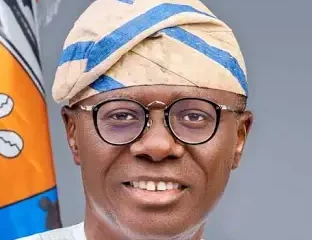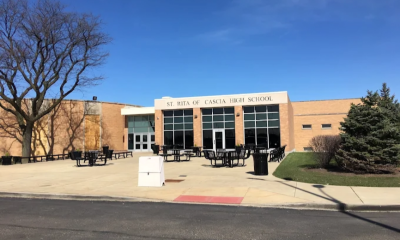Health
Girl-child Education Instrumental to Reducing Gender-based Violence — Malala Fund
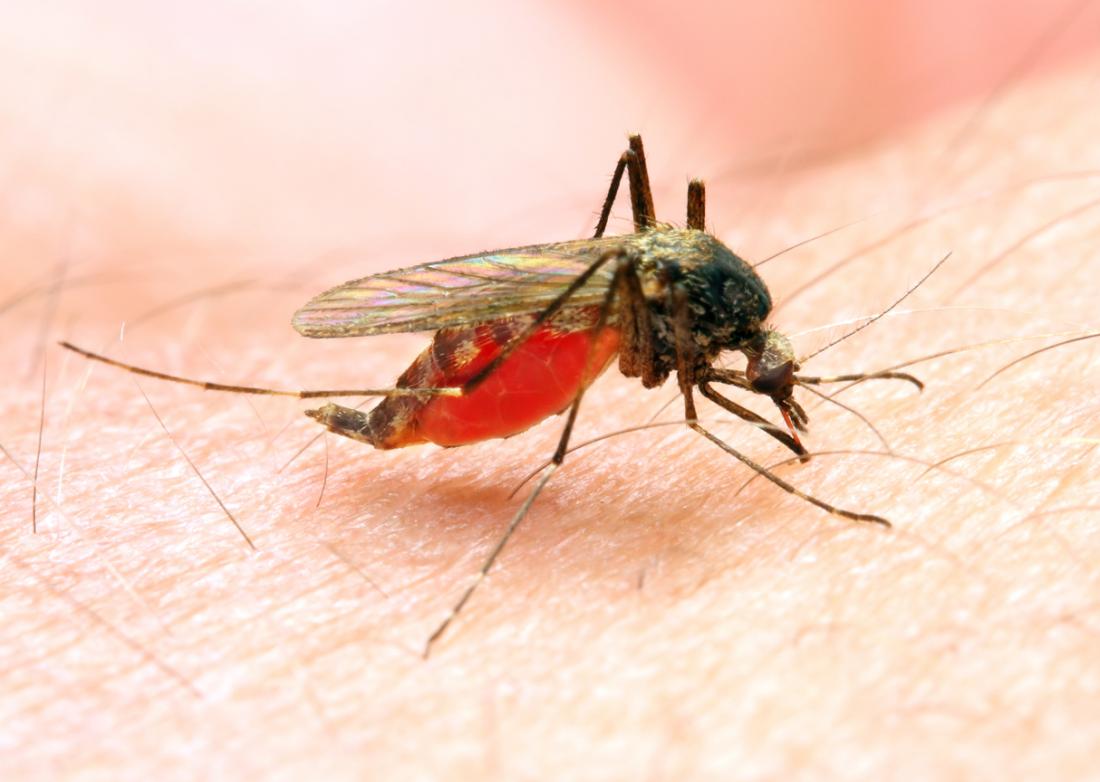
The Malala Fund says educating the girl-child is instrumental in reducing Gender-Based Violence in Nigeria
Ms Pearl Uzokwe, U.S. Board Member, Malala Fund, stated this in an interview on Friday in Lagos.
Uzokwe spoke against the background of the 16 Days of Activism against Gender-Based Violence, an annual international campaign that runs from Nov.
25 to Dec. 10, Human Rights Day.The week focuses on “raising awareness to the devastating impact that gender-based violence and femicide (GBVF) has on women and children, and the social fabric of our society”.
The theme of the week for 2023 is “Unite by 2030 to End Violence against Women and Girls (VAWG)”
Uzokwe said that the civil society remained power advocates and this is where the Malala Fund ‘where I sit on the board comes in.
’“Our mission remains `12 years of good quality education for the girl child’.
“We advocate for policy changes, invest in local education initiatives, and amplify the voices of girls around the world who are fighting for their right to education,” Uzokwe said.
She said that it was important to realise the intersectionality between gender -based violence against the girl-child and girl-child education.
According to her, it is a complex and critical one that involves the overlapping impact of various forms of discrimination and oppression.
“Gender-based violence without a doubt is a barrier to education. Coupled with that is the often cyclical relationship between GBV and lack of education.
“Girls who are denied education may face increased vulnerability to sexual violence due to limited opportunities, economic dependence etc.
“It is for reasons such as this, that Malala Fund which began its work in Nigeria in 2014, is committed to playing its part in reducing the seven million out-of-school girls in the country.
“To do that, hurdles including sexual violence, are part of the consideration,” Uzokwe said.
She noted that Malala Fund had invested more than $6.1 million in education work in Nigeria and in total awarded 52 grants.
She explained that the investment of the fund in Nigeria has impacted 14,000 children with direct services (such as school enrollment initiatives, advocacy trainings, and life skills trainings) and nearly six million children indirectly (through teacher trainings, policy change, and digital technology access).
“In Nigeria we currently fund 15 Education Champion organisations working directly at the grassroots.
“Helping to break barriers to education, including gender-based violence and two Girl Fellows, with a further three Fellows being brought on shortly,” Uzokwe said.
According to her, she is strong advocate for justice and the need for punitive measures in tackling the issues of GBV.
She said that legislations against GBV should be backed with enforcement to serve as a major deterrent.
“Our legal systems must become beacons of hope, not sources of further distress,” Uzokwe said.
She appealed to the private sector and corporate organisations to put in measures that would forestall the incidences of GBV whether at home or in public offices and spaces.
“The beauty of the work in this area is that each and everyone one of us can contribute to eliminating this. Our homes lay the foundation and the tone for what is acceptable in larger society.
“Let us train both boys and girls to truly respect and uphold the girl child and women.
“Fathers, I am specifically pleading and calling on you today as your urgent voices matter more than ever.
“A girl’s self-esteem is often times made or marred in equal proportion to the validation they get from their fathers.
“Don’t just think it, or spend your way to it…, actively speak it over those girl-children and build them up.
“For your sons, don’t just tell them how to treat women, but actively model it. Your example will outlive any words you use,” Uzokwe said.(NAN)
Health
NAFDAC Seals Water Plant in Lafia

The National Agency for Food and Drug Administration and Control (NAFDAC) has shut down a registered water factory in Lafia, Nasarawa State, after it was caught illegally producing five different water products.
Mr Anga Emmanuel, Deputy Director and Head of the NAFDAC Lafia office, disclosed this to journalists on Friday during a press briefing.
He said the factory, originally licensed to produce Mainima Table Water, was discovered during a routine inspection to be manufacturing other unregistered products.
He said one Mr Christian Chukuma was arrested during the visit.
According to Emmanuel, the illegally produced brands included Bilal Table Water, Nkonjun Table Water, Anumzi Table Water, and Agbeni Table Water, none of which originated from Lafia.
“All the other products he was found to be producing are not from Lafia; one is even in Kaduna State,” he said.
He added that the factory’s license had expired and that it failed to meet basic manufacturing compliance standards.
Emmanuel explained that Bilal and Agbeni were registered in Doma Local Government Area (LGA), Nkonjun in Akwanga LGA, and Anumzi in Sanga LGA of Kaduna State.
He described the act as fraudulent and dangerous, and warned others engaged in similar practices to desist or face legal consequences.
Emmanuel emphasised that NAFDAC would intensify its surveillance to ensure only safe and regulated products reached consumers.
“The factory has been shut down and the culprit will face the full wrath of the law to serve as a deterrent to others,” he stated.
The deputy director also called on the public to report any suspicious or unregistered products in their areas for immediate action.
Meanwhile, Chukuma confessed to producing the unregistered water brands.
Speaking to journalists, he blamed economic hardship for his actions and pleaded for leniency.
He claimed that the actual owner of the facility was unaware of the illegal operations, as he had only rented the space.(NAN).
General News
NAFDAC Announces WHO Prequalification of Locally Made Syringe
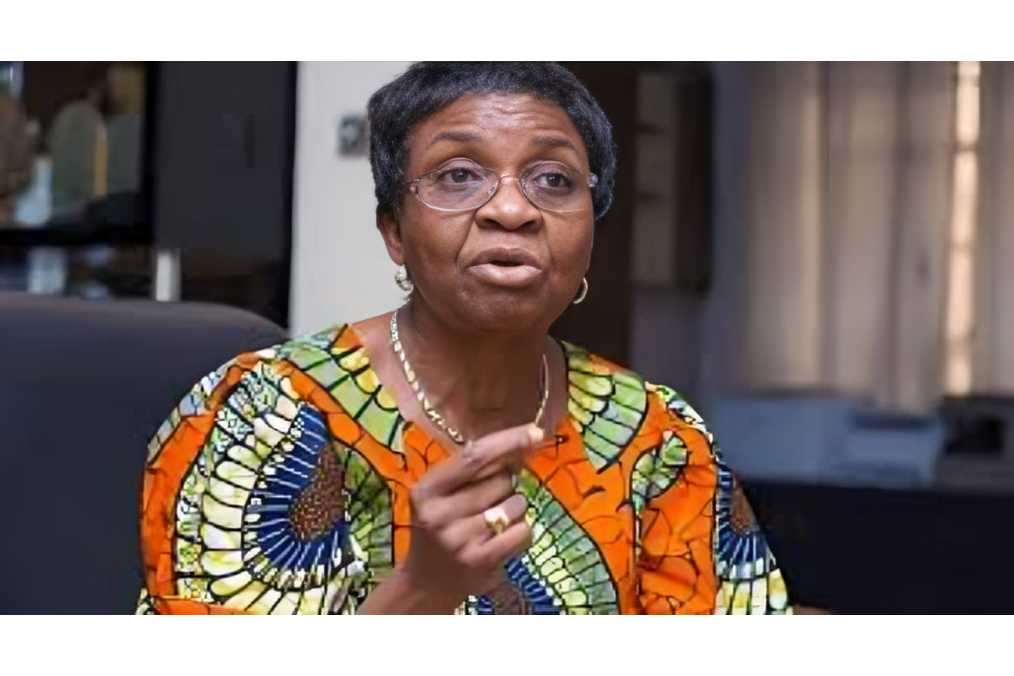
The National Agency for Food and Drug Administration and Control (NAFDAC), says a 0.5ml Auto Disable Syringe produced by Afrimedical Manufacturing and Supplies Ltd, has achieved World Health Organisation (WHO) prequalification.
NAFDAC Director-General, Prof. Mojisola Adeyeye, disclosed this at a news conference on Wednesday in Lagos, describing it as a significant milestone for Nigeria and the West and Central Africa region.
According to Adeyeye, Afrimedical, located in Ogun, is the first indigenous syringe manufacturer in Nigeria—and the entire West and Central Africa—to receive WHO prequalification for its syringes.
She noted that the achievement followed a rigorous process, substantial investment, and technical support and guidance provided by NAFDAC.
“This milestone aligns with the agenda of the President Bola Tinubu-led administration to promote local production of medical products,” she said.
“It is with great joy that I announce that, after a rigorous process, the WHO has prequalified Afrimedical’s 0.5ml AD Syringes.
“They are now eligible for national and international procurement by relevant agencies and organisations.”
Adeyeye added that Afrimedical was now the first manufacturer in West Africa to be recognised by WHO as operating at an acceptable level of compliance with Good Manufacturing Practice (GMP) requirements.
She emphasised that NAFDAC, in its drive to become a world-class regulator, embraced global best practices in all aspects of medical product regulation.
In 2023, only three out of seven indigenous syringe manufacturers in Nigeria were functional, collectively operating at less than 20 per cent of their combined installed capacity of 2.5 billion syringes per year, she revealed.
Adeyeye highlighted NAFDAC’s “5+5” policy, introduced in 2019, which restricted the importation of medicines and devices that could be produced locally.
“Products with five-year registration validity that can be manufactured in Nigeria will be granted one final five-year renewal, after which importation will no longer be allowed,” she explained.
Following NAFDAC’s attainment of WHO Maturity Level 3 in 2023, the agency began engaging international procurement bodies, such as UNICEF’s supply division in Copenhagen, to promote patronage of locally manufactured medical products, including syringes.
The Director-General urged other indigenous manufacturers to emulate Afrimedical’s achievement through collaboration and alignment with NAFDAC’s regulatory goals.
Also speaking at the event, Afrimedical General Manager, Mr Gabi Al-Aridi, described the WHO prequalification as a major milestone for the company, NAFDAC, and Nigeria as a whole.
Al-Aridi praised the federal government’s efforts to support local production and stated that “Afrimedical currently produces about 1.8 billion syringes annually.”
He reaffirmed the company’s commitment to high-quality, locally made medical products and encouraged Nigerians to embrace them to help boost the nation’s economy.
The National Agency for Food and Drug Administration and Control (NAFDAC), says a medical device, 0.5ml Auto Disable Syringe produced by Afrimedical Manufacturing and Supplies Ltd, has achieved WHO Prequalification.
Prof. Mojisola Adeyeye, the Director-General of NAFDAC disclosed this at a news conference in Lagos on Wednesday.
Adeyeye said the company located in Ogun State is the first st local manufacturer of syringes in Nigeria and also in West and Central Africa region to achieve the laudable feat.
She said the company was able to achieve the feat after a thorough arduous process, heavy investment and technical support and guardians by NAFDAC.
The D-G noted that the feat also align with the agenda of the President Bola Tinubu led administration to support local production of medical products in the country.
“it is with great joy and delight that I have the privilege of informing our stakeholders and the public that, after a rigorous process and a lot of investment by Afrimedical, the WHO has prequalified 0.5ml AD Syringes.
“The syringes have now been added to the WHO list of prequalified syringes and are therefore eligible for national and international procurement by relevant agencies and organisations.
“This is undoubtedly the outcome of meaningful collaboration between the company and NAFDAC, and the systematic implementation of NAFDAC policies over the years.
“Afrimedical has become the first manufacturer of syringes to be recognised by the WHO as operating at an acceptable level of compliance with GMP requirements in West Africa,” he said.
Adeyeye said in line with NAFDAC vision to be a world class regulator that ensures only quality and safe regulated products are used in the country, the agency embraced global best practices in all its regulatory functions of medical products.
She added that only three out of the seven indigenous syringe manufacturer were functional in the country in 2023 and they have a combine installed capacity of over 2.5 billion syringes per annum, while functioning below 20 per cent capacity.
She said:”The Agency started laying a foundational policy in 2019 for local manufacturing of medicines such as 5+5 regulatory.
“This directive which ensures that products that were previously imported with five-year registration validity and that can be manufactured in Nigeria are given the last renewal of five years and thereafter prevented from being imported.
“In 2023, after the attainment of WHO Maturity Level 3, NAFDAC engaged UNICEF supply chain in Copenhagen and at a workshop in Lagos to patronize locally manufactured medical products including syringes.
The Director-General, however, encourage other well-meaning local manufacturers of medical products to emulate this feat through harmonization of collective aspiration and synergy of effort with NAFDAC’s relevant directorates.
Speaking also, the General Manager of Afrimedical Manufacturing and Supplies Limited, Mr. Gabi Al-Aridi described the feat as a major milestone for the company, NAFDAC and Nigeria at large.
Al-Aridi, who commended the federal government for promoting local production of pharmaceutical products said the company producing about 1.8 billion syringes per annum.
He reiterated the company dedication to providing high-quality, locally manufactured syringes, while urging Nigerians to embraced locally made syringes to boost the nation’s economy.(NAN)
Health
UN lauds FCT’s Multisector Approach to Ending SGBV
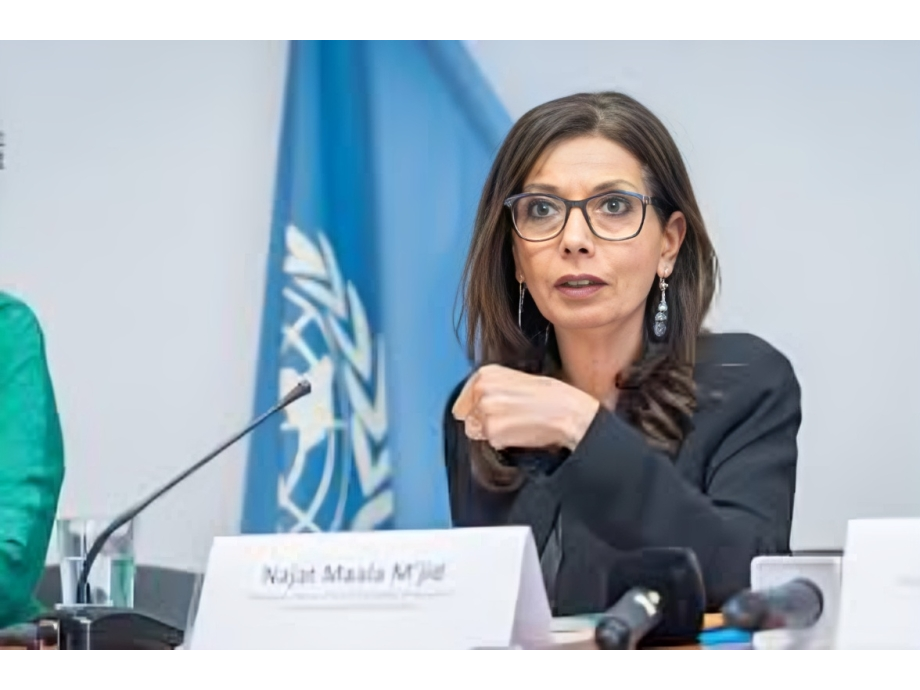
The United Nations has commended the Federal Capital Territory Administration (FCTA) for its multisectoral approach to ending all forms of Sexual and Gender-Based Violence (SGBV).
Dr Najat M’jid, Special Representative of the UN Secretary-General on Violence against Children, gave the commendation in Abuja on Tuesday, when she visited the Awyetu Sexual Assault Referral Centre (SARC).
The SARC, located at Bwari General Hospital was established in 2020 by the British Council on behalf of the European Union under its Rule of Law and Anticorruption (ROLAC) Programme.
The centre was established to provide comprehensive medical, psychological, and legal support to survivors of sexual violence, with a special focus on children and vulnerable populations.
M’jid expressed excitement with the synergy among the different sectors working together to eliminate all forms of SGBV in the FCT.
“I am happy today because of what I have seen – many ministries are onboard supporting the fight against SGBV.
“This is because the problem is not only the problem of FCT Women Affairs; the issues are also in health, in Justice, and in communities,” she said.
She said that she was in the country to understand what was being done to address SGBV, “and how together, we can move forward”.
She added that Nigeria was one of the paths finding countries on ending violence against children.
She also said that the country was very involved and very committed to end all forms of violence against children and had made pledges.
“Visit to Nigeria is to see how we can move ahead, how we can support and how we can achieve set targets from the many commitments the country has made.
“We want to see how we can translate those commitments into concrete services that will prevent and address all forms of violence against children,” she said.
The special representative, however, stressed the need to address the drivers of SGBV, detect and respond to reported cases and ensure that it was not happening again.
She further said: “It is really important to make sure that the victims can be heard, be considered and be seen as victims and make the perpetrators accountable.
“There is also the need to stop justifying violence against children and women through poverty and through social norms”.
Earlier, the Mandate Secretary, FCT Women Affairs Secretariat, Mrs Adebayo Benjamins-Laniyi, pointed out that a multisectoral problem required a multisectoral approach to tackle it.
Benjamins-Laniyi said that a stronger synergy was required among critical stakeholders to deliver critical intervention from the local to the state level, in line with global best practices.
She described M’jid visit as a “positive disruption” that sparked a desire to strengthen partnership and collaboration among the different stakeholders to do more for women and children in the FCT.
The mandate secretary said that the FCT Administration had rolled out plans to reposition the SARC centre to provide quality integrated services to SGBV survivors.
Also, the Mandate Secretary, Health Services and Environment Secretariat, Dr Adedolapo Fasawe, said that M’jid’s visit reaffirmed the global resolve to protect children from violence.
Fasawe, who was represented by the Permanent Secretary in the secretariat, Dr Baba-Gana Adam, added that the visit was very encouraging.
She added that the visit also reinforced the role of sexual assault centre in ensuring access to care, justice, and dignity for survivors of sexual and gender-based violence.
She disclosed that the hospital had continued to sustain the provision of services at the centre when the ROLAC support ended, but amidst numerous challenges.
The mandate secretary, identified some of the challenges as funding for essential drugs and kits, staff training and incentives, inconsistent collaboration with law enforcements, and absence of prevention and community awareness programmes.





